Top Trending StartUps News & Highlights


SNACC, RIL's $110 billion AI war chest, and more are axed by Swiggy.
In the 12 months since inception, Snacc had only been running as a pilot in Bengaluru and Gurugram and had not grown much. In certain subcategories, the app partnered with businesses like The Whole Truth to serve Indian breakfast, coffee, bakery goods, beverages, eggs, and protein; the remaining items were supplied from outside food suppliers.Order numbers and app revenue have not been disclosed by the company.At a time when 10-minute meal delivery was becoming popular, Snacc was introduced in January 2025. Accel-backed Swish was also gaining popularity among investors and customers, while rivals Blinkit and Zepto introduced rival products, Bistro and Zepto Cafe, respectively.The closure follows Swiggy's recent quarterly losses, which prompted the company to raise additional funds through a Rs 10,000 crore qualified institutional placement (QIP) in the face of growing competition in rapid commerce.
Published 20 Feb 2026 12:27 PM


Exclusive: Kutumb, supported by Tiger Global, joins the homosexual dating scene with Polo
With the release of Polo, a specialized gay dating app that is now accessible on the Google Play Store, Bengaluru-based community platform Kutumb has entered the online dating market. Polo has features including smart matchmaking, audio and video calling, instant messaging, and selfie-based profile verification, according to its Play Store listing. Users can also employ interest-based filters, such as age and geography, and make private photo albums. The launch has not been formally announced by the company. Polo's release coincides with Kutumb's ongoing efforts to expand its consumer internet offerings outside its primary community-focused social networking platform. In addition to Polo, Kutumb runs a number of consumer apps in the astrological, lifestyle, social, and utility sectors. Tarot99, Astro99, Digi God, Piku AI, Zuno, Zumo, and Digital Baby are a few of these. In a Series A investment round led by Tiger Global and including Quiet Capital, Rocketship VC, Nirman Investments, AngelList Syndicate, and angel investors, Kutumb raised $26 million in June 2021.Kutumb's operating revenue climbed 173% year over year to Rs 128.6 crore in FY25 from Rs 47.2 crore in FY24. In the fiscal year, the company claimed a net profit of Rs 12 crore, but in FY24, it reported a loss of Rs 3 crore. Polo is reportedly making about Rs 5 crore a month, according to sources. Kutumb did not immediately respond to inquiries. Polo joins the LGBTQ+ dating scene in India, where sites like RainbowLuv, u2nite, ROMEO, Grindr, and HiMoon are already popular. Despite being smaller than popular dating applications, the market is expanding gradually, mostly in cities. Because worries about harassment, phony accounts, and data security can have a direct impact on user trust and retention, user safety, privacy, profile verification, and moderation are crucial.
Published 16 Feb 2026 05:42 PM
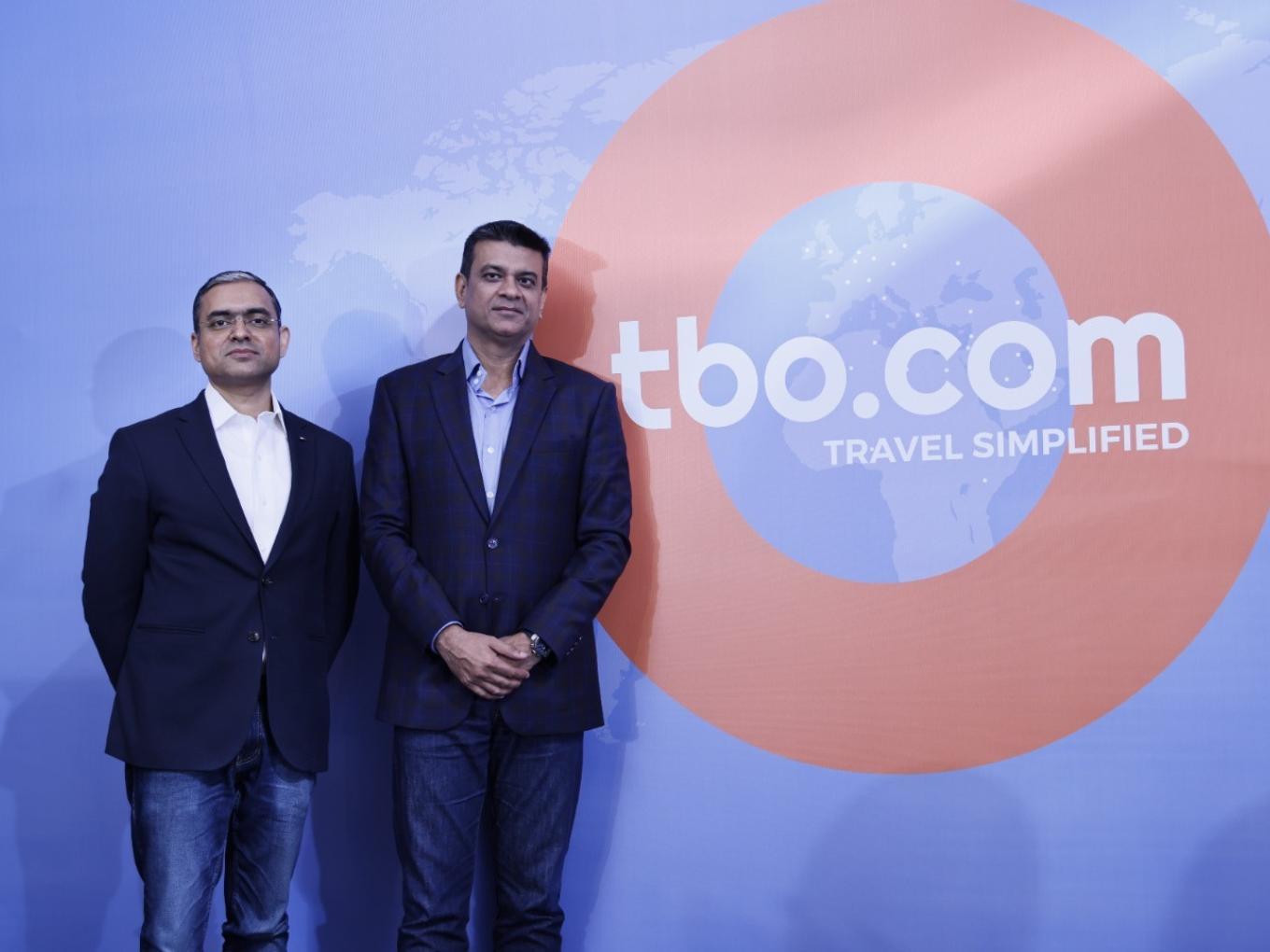

TBO Tek Q3: 7% YoY Profit Growth to ₹54 Cr
In the third quarter of FY26, TBO Tek's profit climbed 7% to ₹53.7 Cr from ₹50 Cr during the same period in the previous fiscal year. The company's PAT decreased by 21% on a sequential basis from the ₹67.5 Cr recorded in the prior quarter. From ₹422.1 Cr in Q3 FY25 to ₹784.3 Cr in the reviewed quarter, operating revenue increased by 86%. It increased 38% sequentially from ₹567.5 Cr. The travel tech company's overall revenue for the third quarter was ₹796.6 Cr, including ₹12.3 Cr in other income. In comparison to the Rs 87 crore net profit recorded in Q3 FY25, IRCON International reported a consolidated net profit of Rs 101 crore for Q3 FY26, representing a 16% YoY increase. Meanwhile, the company's operating revenue dropped to Rs 2,119 crore. Additionally, the business declared an interim dividend for FY26 of Rs 1.2 per equity share. February 17 has been designated as the record date for determining which stockholders are eligible to receive the payout.
Published 11 Feb 2026 11:04 PM


OYO Pre-Files DRHP for IPO of INR 6,650 Cr.
Days after getting shareholder approval for its third attempt at a public listing, PRISMPRISM Datalabs_in-article-icon, the parent company of hospitality upstart OYO, pre-filed draft documents for an IPO.As part of the IPO, which is anticipated to include an offer-for-sale component, the business hopes to raise INR 6,650 Cr through a new issuance. The company is aiming for a valuation of $7 billion to $8 billion for the public offering, according to sources who spoke to Inc42. Bankers from ICICI Securities, Axis Capital, Goldman Sachs, and Citibank have been selected as the book running lead managers for the initial public offering.The INR 6,650 Cr IPO was authorised by PRISM's shareholders earlier this month at an extraordinary general meeting (EGM). In addition, a bonus issue of shares in the ratio of 1:19—that is, one fully paid equity share for every 19 shares held—was approved by the shareholders. In September 2025, it also authorised the issuance of a 1:1 bonus. Interestingly, OYO initially submitted draft documents for an IPO in 2021 but then withdrew them due to market instability. Later, it pre-filed its DRHP but withdrew it last year, opting instead to refinance its $1.2 billion term debt from 2021 through a private capital deal.It is anticipated that the corporation will utilise a sizable portion of the money received from the new IPO to pay down debt. For more than a year, the business has been methodically getting ready to go public. It improved its profitability, expanded its premium range in India and outside, and changed the parent company name from OYO to PRISM earlier this year.
Published 31 Dec 2025 11:16 PM


StartUps
StartUps are the backbone of any country and in any Industry as these are the new ventures which entrepreneurs establish and then contribute to the nation growth and progress. The stratups will then grow and become unicorns and create thousands of employments in different sector boosting the economy and take it to the next level.


SNACC, RIL's $110 billion AI war chest, and more are axed by Swiggy.
In the 12 months since inception, Snacc had only been running as a pilot in Bengaluru and Gurugram and had not grown much. In certain subcategories, the app partnered with businesses like The Whole Truth to serve Indian breakfast, coffee, bakery goods, beverages, eggs, and protein; the remaining items were supplied from outside food suppliers.Order numbers and app revenue have not been disclosed by the company.At a time when 10-minute meal delivery was becoming popular, Snacc was introduced in January 2025. Accel-backed Swish was also gaining popularity among investors and customers, while rivals Blinkit and Zepto introduced rival products, Bistro and Zepto Cafe, respectively.The closure follows Swiggy's recent quarterly losses, which prompted the company to raise additional funds through a Rs 10,000 crore qualified institutional placement (QIP) in the face of growing competition in rapid commerce.


Exclusive: Kutumb, supported by Tiger Global, joins the homosexual dating scene with Polo
With the release of Polo, a specialized gay dating app that is now accessible on the Google Play Store, Bengaluru-based community platform Kutumb has entered the online dating market. Polo has features including smart matchmaking, audio and video calling, instant messaging, and selfie-based profile verification, according to its Play Store listing. Users can also employ interest-based filters, such as age and geography, and make private photo albums. The launch has not been formally announced by the company. Polo's release coincides with Kutumb's ongoing efforts to expand its consumer internet offerings outside its primary community-focused social networking platform. In addition to Polo, Kutumb runs a number of consumer apps in the astrological, lifestyle, social, and utility sectors. Tarot99, Astro99, Digi God, Piku AI, Zuno, Zumo, and Digital Baby are a few of these. In a Series A investment round led by Tiger Global and including Quiet Capital, Rocketship VC, Nirman Investments, AngelList Syndicate, and angel investors, Kutumb raised $26 million in June 2021.Kutumb's operating revenue climbed 173% year over year to Rs 128.6 crore in FY25 from Rs 47.2 crore in FY24. In the fiscal year, the company claimed a net profit of Rs 12 crore, but in FY24, it reported a loss of Rs 3 crore. Polo is reportedly making about Rs 5 crore a month, according to sources. Kutumb did not immediately respond to inquiries. Polo joins the LGBTQ+ dating scene in India, where sites like RainbowLuv, u2nite, ROMEO, Grindr, and HiMoon are already popular. Despite being smaller than popular dating applications, the market is expanding gradually, mostly in cities. Because worries about harassment, phony accounts, and data security can have a direct impact on user trust and retention, user safety, privacy, profile verification, and moderation are crucial.


TBO Tek Q3: 7% YoY Profit Growth to ₹54 Cr
In the third quarter of FY26, TBO Tek's profit climbed 7% to ₹53.7 Cr from ₹50 Cr during the same period in the previous fiscal year. The company's PAT decreased by 21% on a sequential basis from the ₹67.5 Cr recorded in the prior quarter. From ₹422.1 Cr in Q3 FY25 to ₹784.3 Cr in the reviewed quarter, operating revenue increased by 86%. It increased 38% sequentially from ₹567.5 Cr. The travel tech company's overall revenue for the third quarter was ₹796.6 Cr, including ₹12.3 Cr in other income. In comparison to the Rs 87 crore net profit recorded in Q3 FY25, IRCON International reported a consolidated net profit of Rs 101 crore for Q3 FY26, representing a 16% YoY increase. Meanwhile, the company's operating revenue dropped to Rs 2,119 crore. Additionally, the business declared an interim dividend for FY26 of Rs 1.2 per equity share. February 17 has been designated as the record date for determining which stockholders are eligible to receive the payout.


OYO Pre-Files DRHP for IPO of INR 6,650 Cr.
Days after getting shareholder approval for its third attempt at a public listing, PRISMPRISM Datalabs_in-article-icon, the parent company of hospitality upstart OYO, pre-filed draft documents for an IPO.As part of the IPO, which is anticipated to include an offer-for-sale component, the business hopes to raise INR 6,650 Cr through a new issuance. The company is aiming for a valuation of $7 billion to $8 billion for the public offering, according to sources who spoke to Inc42. Bankers from ICICI Securities, Axis Capital, Goldman Sachs, and Citibank have been selected as the book running lead managers for the initial public offering.The INR 6,650 Cr IPO was authorised by PRISM's shareholders earlier this month at an extraordinary general meeting (EGM). In addition, a bonus issue of shares in the ratio of 1:19—that is, one fully paid equity share for every 19 shares held—was approved by the shareholders. In September 2025, it also authorised the issuance of a 1:1 bonus. Interestingly, OYO initially submitted draft documents for an IPO in 2021 but then withdrew them due to market instability. Later, it pre-filed its DRHP but withdrew it last year, opting instead to refinance its $1.2 billion term debt from 2021 through a private capital deal.It is anticipated that the corporation will utilise a sizable portion of the money received from the new IPO to pay down debt. For more than a year, the business has been methodically getting ready to go public. It improved its profitability, expanded its premium range in India and outside, and changed the parent company name from OYO to PRISM earlier this year.
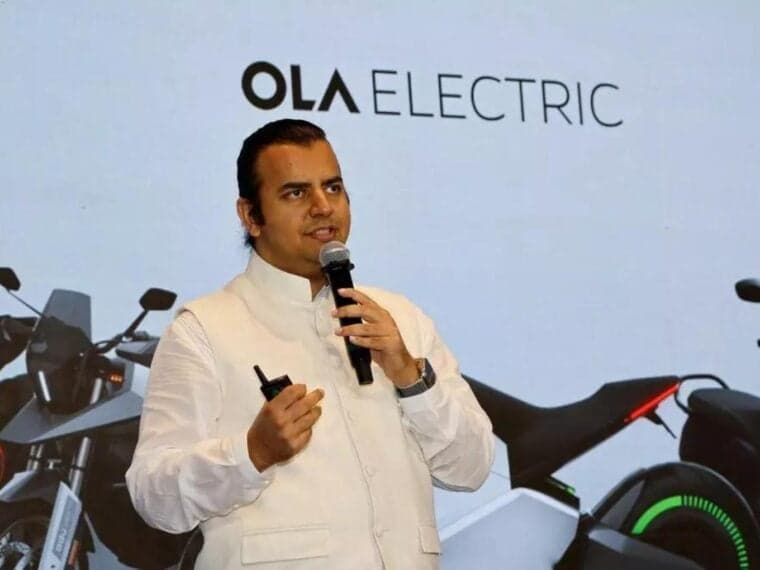

Key Certification for Ola Electric's 4680 Bharat Cell-Powered Roadster X+
Ola Electric, an EV manufacturerThe government has certified Ola Electric Datalabs_in-article-icon's Roadster X+ (9.1 kWh) electric motorcycle, which is powered by an internal 4680 Bharat Cell battery pack. The International Centre for Automotive Technology (iCAT) approved the Roadster X+ in accordance with the Central Motor Vehicle Rules (CMVR), 1989, the firm reported to the stock exchanges. The Roadster X+, which Ola Electric claims is the first electric motorcycle in India to be certified with a wholly in-house built battery pack, would then start to be delivered. The Automotive Research Association of India (ARAI) certified the Bhavish Aggarwal-led company's 5.2 kWh configuration variant of their battery cell pack a few months prior to this breakthrough.Interestingly, the 9.1 kWh battery pack has also been certified by ARAI. The starting prices for the Roadster X series are INR 74,999 for the Roadster X, INR 1,04,999 for the Roadster X+ 4.5kWh, and INR 1,54,999 for the Roadster X+ 9.1kWh, which has a 501 km/charge range. With the most recent approval, Ola Electric will be able to use its 4680 Bharat Cell technology in all of its two-wheeler products, including electric bikes and scooters. The company's next battery energy storage system (BESS), called "Ola Shakti," will also use the same cell platform. The heavy industries ministry recently issued an order authorizing Ola Electric to release INR 366.78 Cr in incentives under the production-linked incentive program.The EV major has been attempting to put out fires on several fronts at this time. For the majority of 2025, the company was under pressure due to high losses, falling revenues and market share, and regulatory issues.


Medibuddy reports FY25 revenue of Rs 725 Cr, reducing losses by 37%.
MediBuddy, a digital healthcare platform, reported a little increase in its operational scale in FY25 after growing by more than two times in the fiscal year that ended in March 2024. Nonetheless, the business was able to reduce its losses by 37% over that time. According to MediBuddy's annual financial records submitted to the Registrar of Companies (RoC), the company's operating revenue increased 12.3% year over year to Rs 724.6 crore in FY25 from Rs 645.4 crore in FY24.MediBuddy is a digital healthcare business that offers insurance services, lab testing, procedures, online and offline medical consultations, and medication delivery. Together, these services' revenue of Rs 722 crore continued to be the company's main source of income, with additional operating sources contributing Rs 2.5 crore. The company's total income in FY25 was Rs 743 crore after earning Rs 18.42 crore from non-operating sources, such as interest on current assets and fixed deposits, written-off liabilities, and other miscellaneous income.The cost of materials, which was Rs 333 crore in the previous fiscal year, accounted for the highest portion of total expenses at 38%. Employee benefits costs came next, rising slightly by 8% to Rs 176.8 crore, which included Rs 6 crore in ESOP costs. During the year, sales payout expenses, which include commissions paid to selling agents, decreased by 7% to Rs 155.47 crore. Additionally, the corporation spent Rs 32.5 crore on information technology and Rs 42.5 crore on safety and security. In FY25, additional overheads totalling Rs 138.7 crore included advertising, legal and professional fees, depreciation and amortisation, and financing charges.In the previous fiscal year, the Bengaluru-based company's total expenses stayed constant at Rs 879 crore. The company's losses were reduced by 37% to Rs 137 crore from Rs 215.7 crore in FY24 thanks to controlled spending and a 12% increase in sales.


Urban Company Receives Penalty Notice and INR 56 Cr GST Demand
GST regulators believed that the startup's services, such painting and appliance repair, were within Section 9(5) of the CGST Act and would need to be taxed appropriately. Urban Company, which intends to challenge the ruling, further asserted that the demand notice will not affect the business's operations or finances. In addition, the GST authorities of Tamil Nadu, Maharashtra, and Haryana have sent the corporation at least three further demand notifications totalling INR 51.3 Cr.Unicorn Urban Company's hyperlocal servicesMaharashtra goods and service tax (GST) authorities have sent Urban Company Datalabs_in-article-icon a tax demand and penalty notice amounting INR 56.4 Cr.Unicorn hyperlocal services Maharashtra GST authorities have sent Urban Company a ₹56.4 crore tax demand and penalty notice for the April 2021–March 2025 period. The notice relates to alleged non-payment of GST on reimbursements to service providers, particularly over services like painting and appliance repair, and contains a primary tax of ₹51.3 crore and a penalty of ₹5.13 crore. Urban Company intends to file an appeal, claiming that the demand won't affect its business operations and that it has a compelling argument. This comes after several tax complaints from several states totalling ₹51.3 crore.


The founder of Organic Harvest introduces the multi-brand venture RASA Group.
Former D2C brand Organic HarvestOrganic Harvest Datalabs_in-article-icon founder Rahul Agarwal has introduced his new multi-brand company, RASA Group. At the moment, RASA Group runs six verticals:Avani Infratech is a high-end, sustainable real estate and commercial infrastructure developer in Goa and Delhi-NCR. Agarwal told Inc42 that it began approximately four and a half years ago and is currently operating at INR 100 Cr ARR. Sarvagun: It specialises in providing ayurvedic therapies that are supported by evidence. RASA Group operates a boutique hospital in Vasant Kunj under this vertical, and it intends to grow throughout Delhi-NCR and beyond. AdventX is a Jim Corbett adventure vertical that now provides mild adventure activities for all ages, including paragliding and hot air ballooning. In Mahabaleshwar, a second site is under development. Friday Night Cars: It imports luxury American vehicles, changes their left-hand drive to right-hand drive, and then sells them to Indian HNIs.Jee Bhar Ke is a food and beverage vertical with four locations, rapid commerce, and a central kitchen. NexGen Drycleaners: Using a hub-and-spoke architecture, it seeks to organise the historically unstructured dry cleaning industry so that clients can track clothing and manage orders via the app for a more efficient experience.Each of these verticals was added at a different time. Sarvagun is the newest vertical introduced by the RASA Group, whereas Avani Infratech is the oldest. "I've been working on this informally for the past four years, and each brand began at a different moment. However, all of the brands were recently consolidated under one roof, according to Agarwal. Avani Infratech, Jee Bhar Ke, and NexGen Drycleaners are currently the main emphasis since they can be quickly scaled up, Agarwal said, adding that all the verticals are commercially functioning.
![[Update] Aequs IPO: Issue Subscribed 3.4X On Day 1](https://watstrending.com/images/post_image/693058a82ccf4.webp)
![[Update] Aequs IPO: Issue Subscribed 3.4X On Day 1](https://watstrending.com/assets/images/logo.png)
[Update] Aequs IPO: Issue Subscribed 3.4X On Day 1
Aequs’ IPO opened to robust demand on Day 1 with the issue getting oversubscribed 3.4X. Investors placed bids for 14.4 Cr shares against the 4.2 Cr shares available. The strong subscription came from retail investors, who oversubscribed their allotment 11.46X. These investors submitted bids for 8.81 Cr shares against 76.91 shares reserved for them. The non institutional investor (NII) part was oversubscribed 3.4X, with these investors submitting bids for 3.92 Cr shares against 1.15 Cr shares on offer. Within this, investors with a bidding sum of over INR 10 Lakh applied for 2.2 Cr shares, while those bidding for shares between INR 2 Lakh to INR 10 Lakh applied for 1.7 Cr shares.Meanwhile, the qualified institutional buyers (QIBs) were also active on day one, subscribing their quota by 66%. In contrast to the 2.26 Cr shares set aside for them, these investors bargained for 1.5 Cr shares. Foreign institutional investors bid for 1.48 lakh shares under the QIB segment. The employee quota was exceeded 6.7X, garnering bids for 12.57 shares against 1.87 Cr shares authorised for them.Contract manufacturing company AequsAequs Datalabs_in-article-icon initial public offerings (IPO) launched on a strong note today, getting oversubscribed within hours of opening. As of 13:15 IST, the offering received bids for 7.32 Cr shares against the 4.20 Cr shares available for subscription. This corresponds to an oversubscription of 1.72X. Leading the way were retail investors, who bid for 5.54 Cr shares instead of the 76.92 Lakh allotted for them, oversubscribing their quota 7.2X. Additionally, non-institutional investors (NIIs) overloaded their stake by 1.63X, placing bids for 1.88 Cr shares as opposed to the 1.15 Cr shares that were set aside for them. Employees of the company have also placed bids for 8.21 lakh shares, exceeding their stake by 4.42 times.As is customary with IPOs, qualified institutional buyers’ (QIBs) showed the least interest in Aequs’ public float on day one. These investors bid for 1.09 Cr shares against the 2.26 Cr shares on sale, equivalent to a 48% subscription. Aequs’ IPO contains a fresh issue of shares worth up to INR 670 Cr and an offer for sale (OFS) component of up to 2.03 Cr shares. Through OFS, investors like Amicus Capital, the Dempo family trusts, Ravindra Mariwala, and Raman Subramanian will sell their shares. Yesterday, December 2, the contract manufacturing company raised INR 413.9 Cr from anchor investors. As many as 33 investors subscribed to 3.3 Cr equity shares, of which around 57% shares were lapped by domestic mutual funds.


Eternal Q2: Revenue Up 183% YoY, Profit Drops 63% YoY To INR 65 Cr
The combined profit for Q2 FY26 of Zomato and Blinkit parent company Eternal fell 63% to INR 65 Cr from INR 176 Cr in the same quarter last year. On a sequential basis, the company’s profit jumped 160% from INR 25 Cr PAT reported in the previous quarter.For the second quarter (July-September) of FY26, food delivery business Eternal, formerly known as Zomato, reported a dramatic 63% year-over-year fall in its consolidated net profit, which came in at Rs 65 crore as opposed to Rs 176 crore in the same quarter the previous year. The company's net profit, however, improved sequentially from Rs 25 crore during the April–June quarter.Eternal's operating revenue increased by an astounding 183% year over year to Rs 13,590 crore in Q2FY26 from Rs 4,799 crore in the same period of the previous fiscal year, despite the decline in profitability. However, the topline decreased by about 90% sequentially from the Rs 7,167 crore recorded in Q1FY26.The business blamed strategic expenditures meant to propel long-term growth, especially in its rapid commerce division, Blinkit, for the sequential impact on margins and topline. Although absolute losses decreased, Eternal pointed out that the rate of margin improvement was slower than anticipated, mostly as a result of aggressive spending in crucial areas including infrastructure, store expansion, and marketing.


To go outside of Delhi NCR, HouseEazy has raised INR 150 Cr.
The proptech business HouseEazyHouseEazy Datalabs_in-article-icon has recently announced raising INR 150 Cr ($16.9 Mn) in its Series B investment round, almost six months after Inc42 reported that the company was in advanced talks with investors to seek fresh funds. Accel led the round, with a few unnamed investors joining in addition to current investors Chiratae Ventures and Antler.The proptech business, which was in advanced talks with investors to secure more funds, has today announced that it has raised INR 150 Cr ($16.9 Mn) in its Series B fundraising round. Accel led the round, with a few unnamed investors joining in addition to current investors Chiratae Ventures and Antler. According to OpenAI, prejudice erodes trust, which is why it wants ChatGPT to be "objective by default." There is presently no industry-wide definition of political bias in AI, nor is there a technique that can totally eradicate it, according to the company's description of political and ideological bias in big language models as an open research challenge in this study.
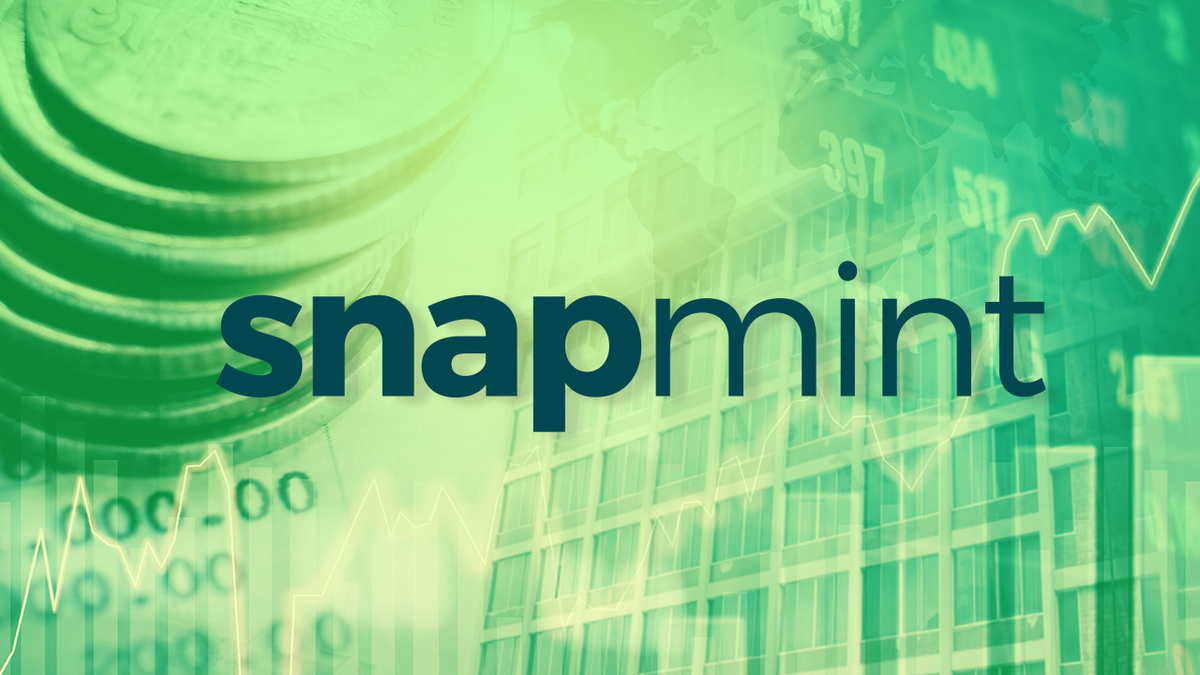

In negotiations to raise $100 million in a round headed by General Atlantic, Snapmint
Snapmint is in advanced negotiations with General Atlantic to raise around $100 million, or INR 886 crore, in a fresh investment round. There will be primary and secondary components to the financing, and some early angel investors may partially withdraw. A few early angel investors are probably going to partially depart the round, which will have both primary and secondary components.Mumbai: According to four persons with knowledge of the situation, consumer lending platform Snapmint is currently gathering $100 million in a funding round headed by General Atlantic and involving current backers Elev8 Venture Partners and Kae Capital.Snapmint is in advanced negotiations with General Atlantic to raise around $100 million, or INR 886 crore, in a fresh investment round. There will be primary and secondary components to the financing, and some early angel investors may partially withdraw.is in advanced discussions to raise over $100 million (roughly INR 886 crore) in a fresh investment round headed by General Atlantic, according to sources.


Eternal Shares Reach New 52-Week High Following Citi's Target Price Increase
Shares of Eternal and SwiggySwiggy Datalabs_in-article-icon rose during the intraday trading on the BSE today after brokerage Citi raised the target price (TP) for both the companies.During intraday trading, Eternal reached a new 52-week high of INR 347.50 after Citi elevated its target price for the stock from INR 320 to INR 395. Citi reports that the growth momentum for Eternal's quick commerce business, Blinkit, remains impressive, and the increase in app traffic indicates a focus on user acquisition. Citi raised the target price for Swiggy from INR 465 to INR 495, representing a 17% upside from yesterday’s close of INR 421On the BSE, shares of Eternal rose to a 52-week high of Rs 347.50 on Thursday, increasing by as much as 1.7%. In 2025, the stock has risen by almost 25%, and over the last month, it has increased by approximately 6%. Citi kept its 'buy' rating for Zomato while changing the target price from Rs 320 to Rs 395 per share. The share price of Eternal Ltd. was bolstered by research firm Citi, which raised the price target from Rs 320 to Rs 395 while keeping a 'buy' rating on the stock. The 23% increase is mainly fueled by the impressive growth momentum and robust market leadership of its Quick Commerce business—Blinkit. The brokerage has raised its valuation multiple significantly and has increased its
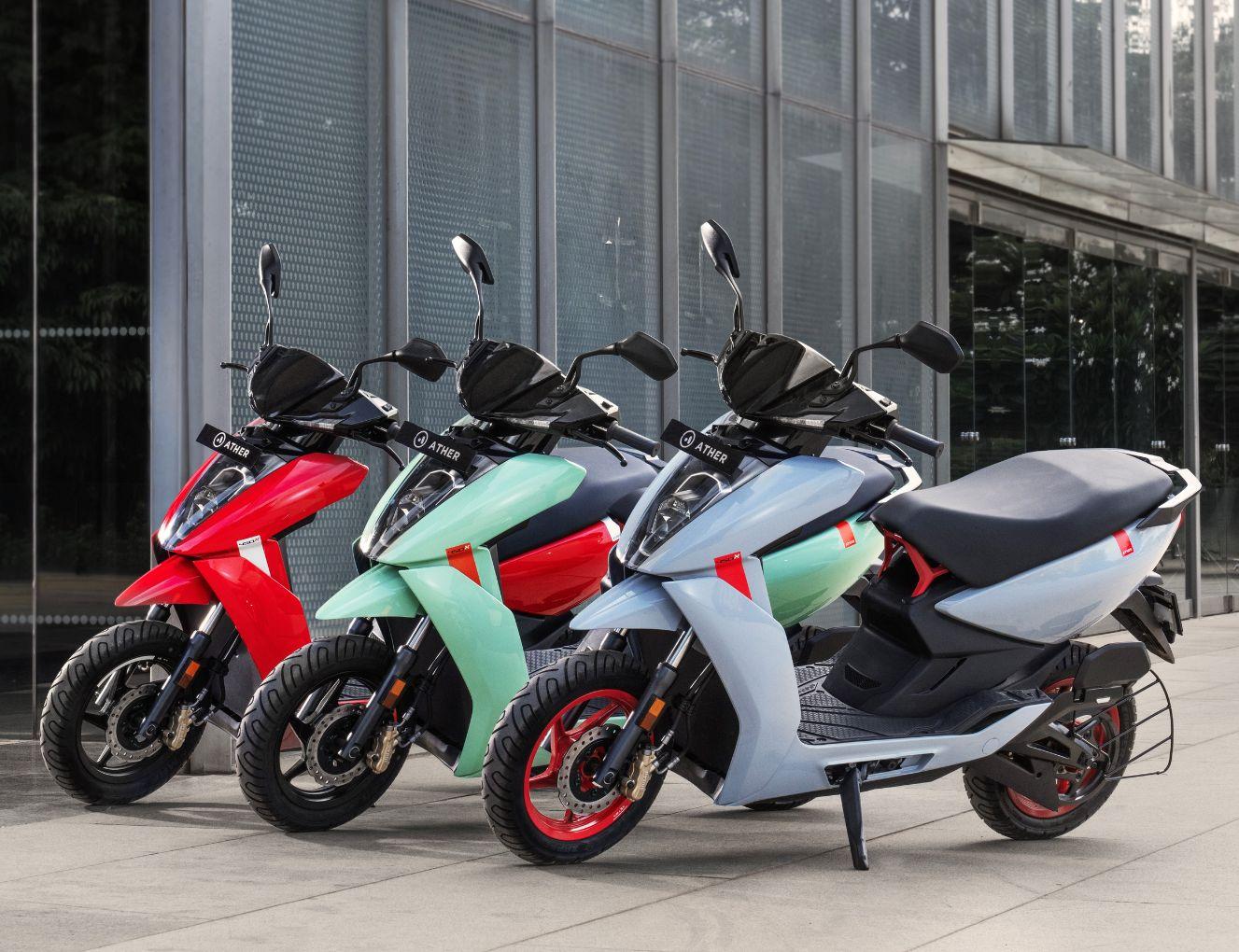

Ather Energy Hits New Record High, HSBC Increases Target Price to INR 700
After HSBC increased its target price (TP) for the company, shares of EV manufacturer Ather EnergyAther Energy Datalabs_in-article-icon rose 7.8% to INR 678.50, reaching a new all-time high during today’s intraday trading on the BSE. The TP for Ather was raised by the brokerage from INR 600 to INR 700. The new target price translates to an increase of over 11% from Ather’s closing price yesterday (INR 629.55). HSBC estimates that Ather’s sales volumes will consistently rise due to the growing number of stores. “Volumes have consistently risen over the past few months, even as competition from incumbents has intensified, due to the company opening more stores,” it stated in its report.HSBC anticipates Ather's sales to surge by 22% quarter-on-quarter in Q2 FY26, as retail sales during the quarter averaged 18,000 units. Ather’s EBITDA loss margin is projected to enhance by 110 basis points (bps) on a quarterly basis and by 420 bps on a yearly basis, owing to improved operating leverage. “Ather has positioned itself as a robust brand within the EV sector, and we anticipate that the response to the EL platform will surpass our prior expectations; consequently, we are increasing our estimates and adjusting our target price to INR 700 (up from INR 600),” it added. In the meantime, HSBC lowered its rating for Ola Electric from ‘Hold’ to ‘Reduce’ and reduced the target price from INR 55 to INR 45.The brokerage noted that Ola Electric was losing market share amid growing competition, even with catalysts that should have benefited it in Q2 FY26. “According to Vahan registrations, we anticipate a quarterly decrease of 20% in Ola volume, bringing it down to 55K units,” it stated. It does foresee, though, that Ola Electric’s gross margin will increase by 220 basis points quarter on quarter to reach 28% in the second quarter, thanks to cost optimisation from the Gen 3 platform. Additionally, the brokerage highlighted that Ola Electric incurs fixed costs that exceed those of its rivals.“Ola exhibits greater vertical integration in the production of components (such as batteries and motors). “The sales are conducted through COCO distribution models (company owned, company operated), which is detrimental to Ola’s profitability in the low-volume environment,” it said.
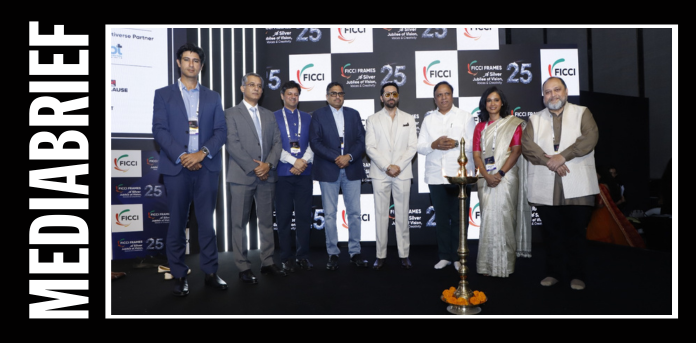

FICCI FRAMES 2025: Kevin Vaz of JioStar advocates for "light-touch" legislation to enable India's aspirations for international content
Today, Kevin Vaz, Chairman of FICCI’s Media & Entertainment Committee, inaugurated the 25th edition of FICCI FRAMES, marking a crucial milestone for India’s media and entertainment sector. He called for a reimagining of growth, recalibration of regulation, and reaffirmation of India’s global storytelling ambitions. Vaz stated, while speaking to a full auditorium of industry leaders, policymakers, creators, and changemakers, “This goes beyond being an anniversary — it is a time for reflection, refocusing, and rising.” The event, themed RISE Together (Reimagine, Innovate, Strengthen, Empower), commemorates FRAMES' 25 years as a platform for policy dialogue, business exchange, and cultural diplomacy.A voyage from acknowledgment to self-reinvention Vaz, while reminiscing about the inception of FRAMES in 2001, underscored the pivotal moment when the Indian government granted industry status to the media and entertainment (M&E) sector. This decision opened the door for capital influxes, institutional investments, and a professional approach throughout the value chain. Vaz noted, “We’ve come a long way — from the rise of satellite TV and cable to the boom in OTT, VFX, and immersive tech,” acknowledging the contributions of stalwarts like Yash Chopra, Karan Johar, and Uday Shankar, who have guided the FICCI M&E Committee over the years. “Their legacy continues through our endeavors to expand the creative economy in India.”Television and Digital: An Indian AND Story Vaz challenged global assumptions about disruption by asserting that India is a rare “AND” market, where television and digital platforms are not rivals but co-existing engines of growth. “Pay TV, Free TV, and Connected TV are growing in tandem with digital. This dual-track growth is contributing to the overall expansion of the M&E pie, rather than dividing it,” he noted.Sports, Streaming Services, and the Emergence of Regional Narratives The sports ecosystem in India, particularly in cricket, kabaddi, and esports, is experiencing unmatched momentum. This growth is being fueled by digital platforms that enhance reach through interactive, multilingual, and immersive content. In the realm of film, regional cinema and Indian OTT are driving India’s soft power on the global stage. Vaz stated, “Our narratives, spanning from RRR to The Elephant Whisperers, are clinching Oscars, dominating box office sales, and capturing hearts.” Cross-border collaborations are being fueled by co-production treaties and a revitalized NFDC.Sports, Streaming Services, and the Emergence of Regional Narratives The sports ecosystem in India, particularly in cricket, kabaddi, and esports, is experiencing unmatched momentum. This growth is being fueled by digital platforms that enhance reach through interactive, multilingual, and immersive content. In the realm of film, regional cinema and Indian OTT are driving India’s soft power on the global stage. Vaz stated, “Our narratives, spanning from RRR to The Elephant Whisperers, are clinching Oscars, dominating box office sales, and capturing hearts.” Cross-border collaborations are being fueled by co-production treaties and a revitalized NFDC.


JSW One Platforms Secures INR 575 Cr to Broaden Operations and Fortify NBFC Division
JSW Group’s B2B ecommerce marketplace, JSW One Platforms, has secured an extra INR 235 Cr, bringing the total of its current funding round to INR 575 Cr. State Bank of India (SBI), Principal Asset Management, One-Up, International Conveyors Ltd. (ICL), Scarlett Ventures, and JSW Steel participated in the funding round. This year in May, the company commenced the funding round. At that time, the JSW One Platforms declared a fundraising of INR 340 Cr at a unicorn valuation.JSW One Platforms stated that it will use the new capital to invest in its own technology platform, broaden its operations, and reinforce its non-banking financial company (NBFC) division. The company will use the funds to improve credit access, strengthen underwriting capabilities, and create tailored financial products for small businesses. It also intends to enhance its distribution and logistics network across key industrial clusters to improve last-mile delivery, fulfilment, and the provision of embedded financial services, according to a statement.JSW One Platforms, established in 2020, serves as a B2B tech-enabled marketplace aimed at construction and manufacturing MSMEs. Its services encompass procurement, credit, fulfilment, and private brands. JSW One Platforms also runs JSW One Homes, which links clients with contractors and professionals to manage the full process from purchasing a plot to constructing a home.In 2023, JSW One Platforms secured Series A funding amounting to INR 205 Cr ($25 Mn) at a valuation of INR 2,750 Cr. Mitsui & Co Ltd. took the lead in the round. The company stated at that time that the funding round in May resulted in a valuation increase of more than three times compared to the round in April 2023. JSW One Platforms stated that its gross merchandise value (GMV) grew 2.4 times year-on-year, reaching INR 12,567 crore in FY25. The firm stated that it is expected to exceed INR 8,000 Cr in GMV during H1 FY26. According to Tofler, the company reported a revenue of INR 70.7 Cr in FY24. The net loss amounted to INR 199.8 Cr.


"On day five of the Zappfresh IPO, 94% of subscribers signed up; retail interest is still low. "
Today is the fifth day of Zappfresh's public offering, which was extended on September 30. By the end of October 3, 94% of the issue was subscribed, according to data from Chittorgarh. The company's IPO was most eagerly anticipated by qualified institutional buyers (QIBs), who oversubscribed their quota by 1.45 times. Against the 11.16 lakh shares that were set aside for them, these investors placed bids for 16.16 lakh shares. Additionally, non-institutional investors (NIIs) bid for 10.50 lakh shares against the 8.39 lakh shares designated for them, oversubscribing their quota by 1.25X.However, as of Day 5, the overall subscription was down due to a lack of interest from ordinary investors. A 51% subscription resulted from retail investors bidding for just 9.96 lakh shares, compared to the 19.54 lakh shares that were set aside for them. The BSE SME IPO was originally scheduled to close on September 30, but due to low investor interest, it has been extended to Monday, October 60, for subscriptions. Only 52% of the offering had been subscribed for at that point, with investors purchasing 22.44 lakh shares out of the 42.39 lakh available.Consequently, the meat delivery company changed its price range from INR 96 to INR 101 to INR 95 to 100 and prolonged the IPO. The company now wants to raise roughly INR 59 Cr from the public float at a valuation of about INR 223 Cr, which is at the upper end of the revised bracket.ZappfreshZappfresh Datalabs_in-article-icon raised INR 16.8 Cr from 11 anchor investors prior to the issue opening by offering 16.7 Lakh shares at INR 101 per. With an investment of more than INR 4 Cr, Craft Emerging Market Fund held the greatest proportion among them, followed by Viney Growth Fund with INR 2.5 Cr and Narnolia India Opportunity Fund with INR 2 Cr.
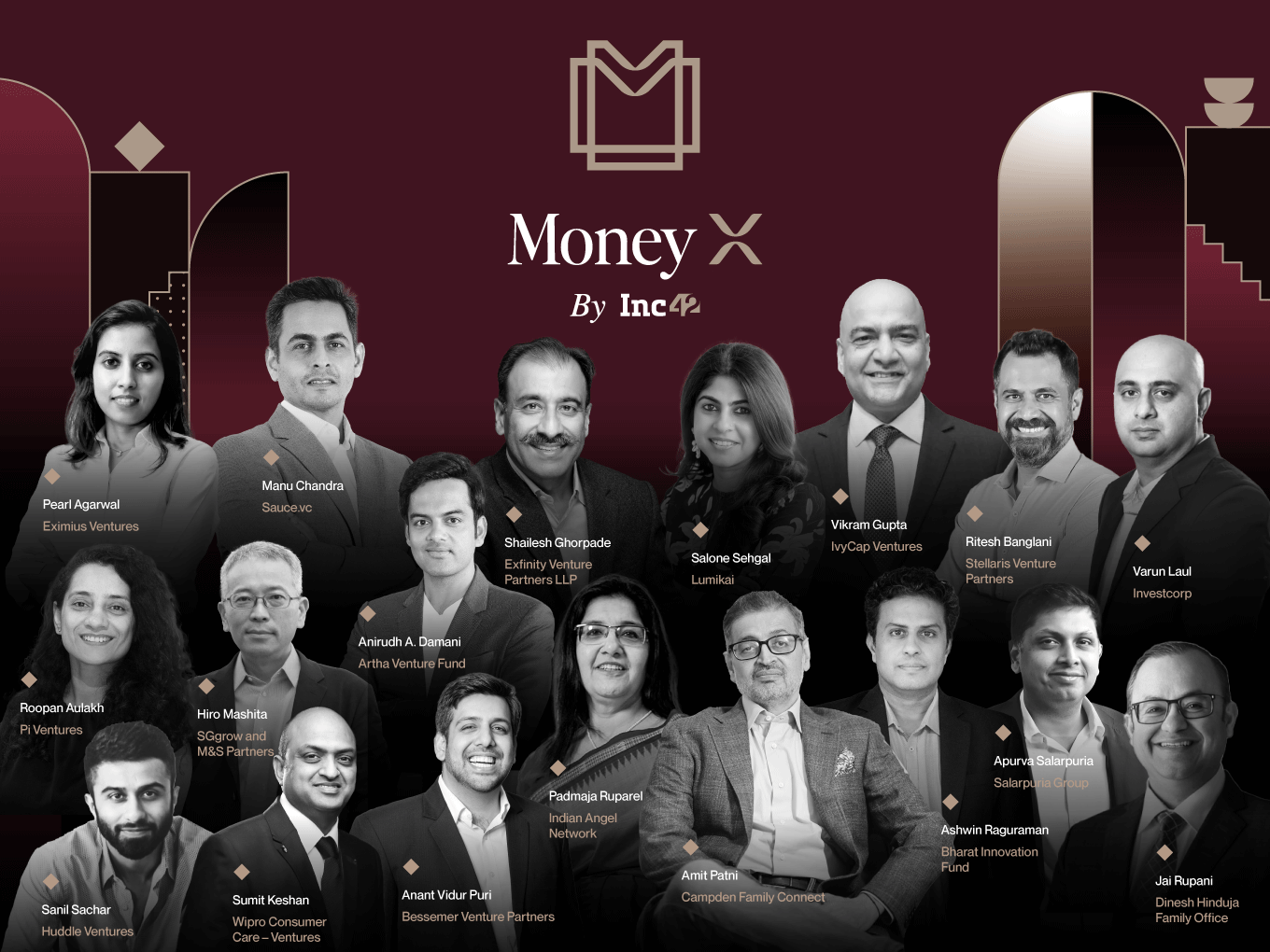

With over 50 investors reshaping VC playbooks, MoneyX Dialogues makes its debut in Bengaluru.
The inaugural edition of MoneyX Dialogues — Venture Capital Unplugged brought together over 50 investors to discuss the evolving playbooks and sector priorities The fire-side chat featuring V. Vaidyanathan from IDFC FIRST Bank underscored the necessity for venture capitalists and banks to collaborate closely in order to establish a robust financial foundation for startups. With recast playbooks, rebuilt partnerships, and robust value creation in sight, the investing community plans to redefine the rules for VCs.In late August, it was a breezy evening in Bengaluru, and amidst an august gathering of investors, a chortle erupted. It was sufficiently loud to be overheard. Nothing appears more natural than the presence of artificial intelligence in business. Almost as a rule, every pitch deck appears to start with an AI-first approach. The laughter was set off by that. However, it pertained to understanding the truth of the technological era and was definitely not about a rhetoric that dismissed technology. Under the humor, there lay a serious truth: the deployment of capital in India is changing rapidly, and investors are adjusting their playbooks to balance conviction with caution.This was corroborated by a recent Inc42 investor survey, which found that AI was the top choice for both early and growth stage investments. In order to decipher these signals, Inc42 collaborated with IDFC FIRST Bank to organize the inaugural MoneyX Dialogues — Venture Capital Unplugged event, which was supported by Rukam Capital, in Bengaluru on August 21. Over the course of the evening, more than 50 of India’s most astute investment professionals gathered, including early-stage VCs, fund managers focused on emerging and growth stages, HNIs, family offices, and angel investors.The event included a closed-door roundtable discussion with early and growth stage fund managers, high-net-worth individuals, and family offices, moderated by Amit Nawka, a partner at PwC Deals. It also featured a fireside chat with V. Vaidyanathan, the MD and CEO of IDFC FIRST Bank, moderated by Inc42 cofounder and CEO Vaibhav Vardhan. They discussed the evolution of venture capital in India and the strategies that would drive the next wave of startups.

















